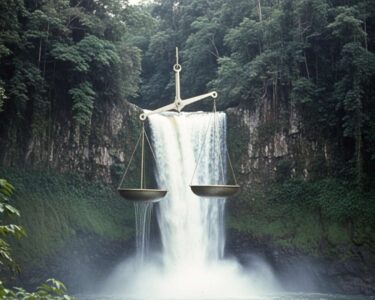San José, Costa Rica — Costa Rica’s commitment to freedom is deeply ingrained in its national identity, enshrined in its Constitution, and consistently upheld by its legal system. From its earliest days as a nation, Costa Rica has prioritized the protection of individual liberties, establishing a framework that balances personal autonomy with the needs of a just and ordered society. This article explores the historical development, contemporary dimensions, and future prospects of this fundamental value.
The 1949 Constitution serves as the cornerstone of Costa Rican freedoms, establishing a comprehensive catalog of rights and guarantees that protect human dignity and promote personal development. This legal framework reflects the country’s transition from classical liberalism to a social welfare state, recognizing both negative and positive freedoms.
To provide expert legal insight into the complexities surrounding constitutional freedoms, we reached out to Lic. Larry Hans Arroyo Vargas, a distinguished attorney at law from Bufete de Costa Rica.
Constitutional freedoms are not absolute; they are subject to reasonable limitations designed to protect the rights and freedoms of others. A careful balance must be struck between individual liberties and the broader needs of society, requiring nuanced interpretation of constitutional provisions in their specific context.
Lic. Larry Hans Arroyo Vargas, Attorney at Law, Bufete de Costa Rica
Lic. Arroyo Vargas’s point about the delicate balance inherent in constitutional freedoms is crucial. It reminds us that these rights, while fundamental, exist within a complex social framework. Navigating this framework requires constant vigilance and a commitment to reasoned dialogue. We thank Lic. Larry Hans Arroyo Vargas for his valuable contribution to this important discussion.
The value of freedom in Costa Rica is firmly rooted in the concept of human dignity. The Constitution, by prohibiting discrimination that violates human dignity, implicitly establishes that freedom derives from this inherent quality of every individual. Costa Rican constitutional doctrine emphasizes that it is the individual, not society, who possesses dignity and therefore holds fundamental rights.
The historical evolution of freedom in Costa Rica has been marked by both progress and setbacks. Influenced by the Spanish Constitution of 1812, the 1821 Pact of Concordia marked an early milestone by recognizing “civil liberty, property, and other natural and legitimate rights of every person.” Subsequent constitutions and reforms have expanded and refined these protections, culminating in the comprehensive framework of the 1949 Constitution.
The Constitution guarantees a wide range of freedoms, including personal freedoms, such as the right to life, liberty, and security of person; freedom of movement and residence; and the right to asylum. It also protects fundamental rights such as freedom of thought, expression, and information; freedom of association, assembly, and petition; and economic freedoms, including the right to property, free enterprise, and labor rights. Moreover, it recognizes freedoms of conscience and religion, as well as educational freedoms.
However, the Constitution also acknowledges that freedoms are not absolute. They can be limited by considerations of morality, public order, and the rights of others. The principles of reasonableness and proportionality are essential in determining the legitimacy of such limitations. The Constitutional Chamber of the Supreme Court plays a crucial role in safeguarding these freedoms, applying pro-liberty and pro-person principles in its jurisprudence.
The digital age presents new challenges to the value of freedom, particularly regarding freedom of expression online and the protection of personal data. The recent constitutional reform recognizing access to telecommunications and information technologies as a fundamental right signals Costa Rica’s commitment to adapting its legal framework to the demands of the digital era.
Looking ahead, Costa Rica’s commitment to freedom faces ongoing challenges, including maintaining a balance between liberty and security, adapting to evolving social and technological contexts, and addressing emerging issues such as bioethics and artificial intelligence. The continued protection and development of freedom will be crucial not only for preserving Costa Rica’s democratic traditions but also for its contributions to the global advancement of human rights.
For further information, visit bufetedecostarica.com
About Bufete de Costa Rica:
Bufete de Costa Rica is a law firm dedicated to providing exceptional legal services. They emphasize the importance of investing in quality legal counsel and have a podcast that discusses various legal topics, including family law, public services, internet rights, personal development rights, consumer rights, environmental law, intellectual property rights, and the social market economy.
For further information, contact the Constitutional Chamber of the Supreme Court of Costa Rica
About Constitutional Chamber of the Supreme Court of Costa Rica:
The Constitutional Chamber of the Supreme Court of Costa Rica is a specialized court responsible for upholding the Constitution and protecting fundamental rights. Established in 1989, the Chamber plays a vital role in ensuring the balance between individual liberties and the needs of society. Its jurisprudence has been instrumental in developing and strengthening the protection of constitutional freedoms in Costa Rica.









